If you’re looking for a new heating and cooling system, you might be thinking whether an air conditioner vs a heat pump is better for you. Here’s a brief breakdown of the fundamental differences between these two types of systems to help you decide which is best for your house.
Air Conditioner vs Heat Pump
When deciding which system is best for you, there are a few crucial variables to consider. First, consider your local climate. If you live in a climate with cooler winters, a heat pump may be a better choice because it can offer both heating and cooling. Living in hot climates most likely means you need an air conditioner.
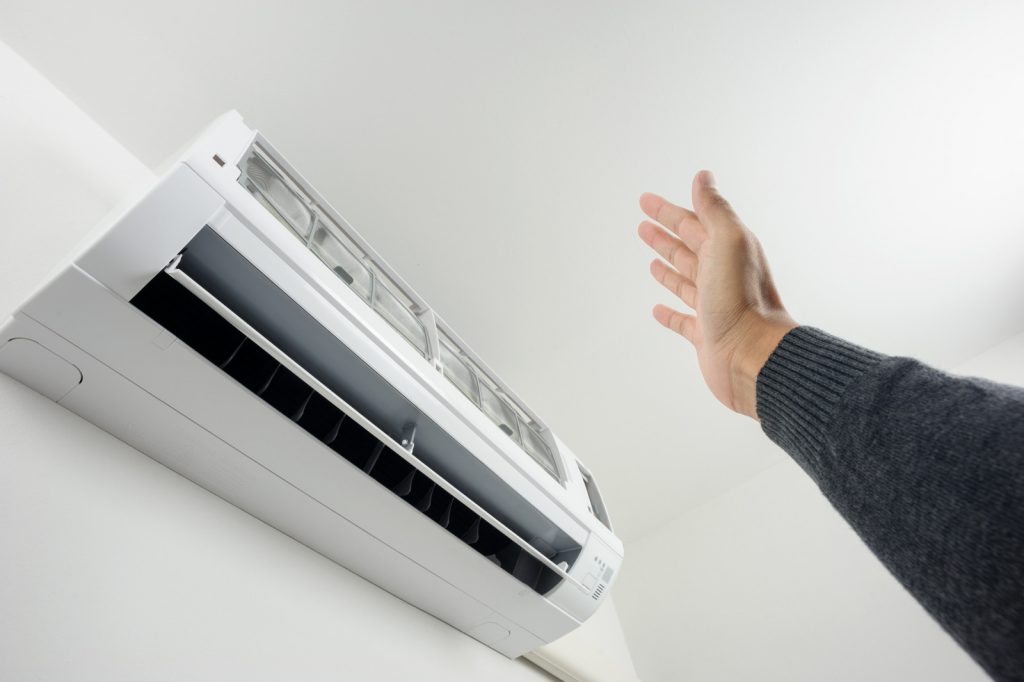
How does a heat pump work?
Heat pumps transfer heat by circulating a refrigerant through a reversible system of coils and tubes. The heat pump transports heat from the chilly outdoors into your heated residence while it is in heating mode. The heat pump transports heat from your cold house to the heated outdoors while in cooling mode.
Heat Pump Systems: Find How They Work And The Types
Main Components of a Heat Pump
A heat pump is an appliance that transfers heat energy from a heat source in the atmosphere to where it is needed. Even though it may be cold outside, there is still warmth which the heat pump can collect and transfer to a room.
It does this with with the help of a small amount of external electricity that is returned 3 or 4 times over.
A heat pump system consists of four major components: the evaporator, the condenser, the compressor, and the expansion valve.
The evaporator is basically a heat exchanger that transfers heat obtained from outside air or the ground. This heat causes the refrigerant inside to evaporate. The compressor then takes over and condenses the refrigerant which heats it up.
Next, the refrigerant (gas) is transferred into the heating system which makes it condense. The condenser absorbs the heat and feeds it into where it’s needed like a radiator. The compressor functions as a pump, circulating refrigerant through the condenser and evaporator.
The compressor is normally positioned outside the house. The expansion valve regulates the flow of refrigerant into the evaporator.
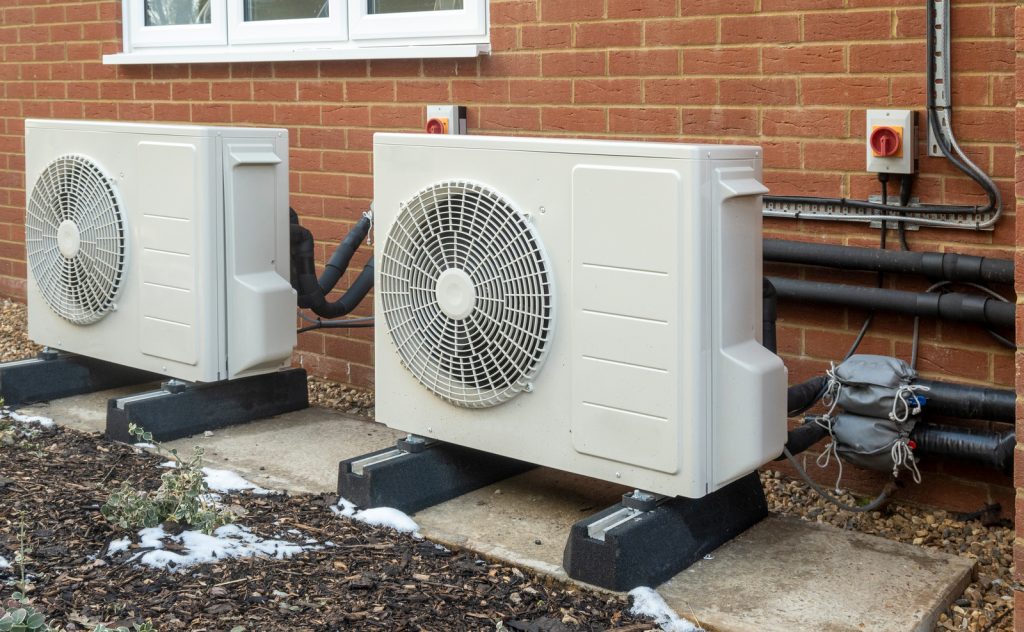
Advantages of heat pumps
The main benefit of a heat pump is its efficiency. Using the same amount of power, a heat pump can move three to five times more heat than an electric resistance heater. Heat pumps are so effective that they are frequently used in conjunction with solar panels to heat and cool dwellings.
Another benefit of heat pumps is that they may be used to both heat and cool your house. This may be a huge help, especially if you live in a region with high temperatures.
A third benefit of heat pumps is that they are far safer than other types of heating. Heat pumps, for example, do not emit carbon monoxide gas like furnaces.
Read about the advantages of heat pumps here
Disadvantages of heat pumps
However, there are certain drawbacks to using a heat pump. One disadvantage is that a heat pump requires an electrical source to operate. This means that a heat pump is not a viable option if there is a power cut.
They also have a backup heating function when demand is high, so you will need more electricity to use this. If you live in very cold climate, the condensate drain pipe can freeze – you will need to attach a heated coil around it to melt the ice, again requiring electricity.
Another downside of a heat pump is its noise. When a heat pump is functioning, the compressor creates a lot of noise. This might be difficult for people who need to sleep or work in a quiet atmosphere. It also blows out cold air in cooling mode so shouldn’t be installed anywhere it can cause a nuisance.
Heat pumps need to be kept on and operating the whole day. Manufacturer’s state to leave the system operating once you turn it on and leave it to do its job. Heat pumps require a high air flow rate to function properly. Otherwise the system won’t get moving to heat the radiators or underfloor heating.
What is an Air Conditioning Unit?
Air conditioning is a modern convenience that is increasingly popular in many homes. It is a system that controls humidity, air movement, and air temperature to help maintain comfortable temperatures in a home.
Air conditioning systems work by drawing in outside air, cooling it, and circulating it throughout the house. On top of that, air conditioning systems use filters to remove airborne particles from the air, such as dust and pollen
Air conditioning systems range in size and type, from window-mounted units to whole-house systems. It is critical to consider the size, climate, and individual needs of your home when selecting an air conditioning system.
How does an air conditioner cool a house?
Air conditioners use a process known as compression to cool the air. The refrigerant is compressed and heated by the compressor during compression, resulting in a high-pressure gas. This gas is then discharged into the evaporator, where it absorbs heat from the surrounding air and evaporates.
The evaporated refrigerant is then passed through the condenser, where the heat it has absorbed is released and the air is cooled.
Pros & Cons of Air Conditioners
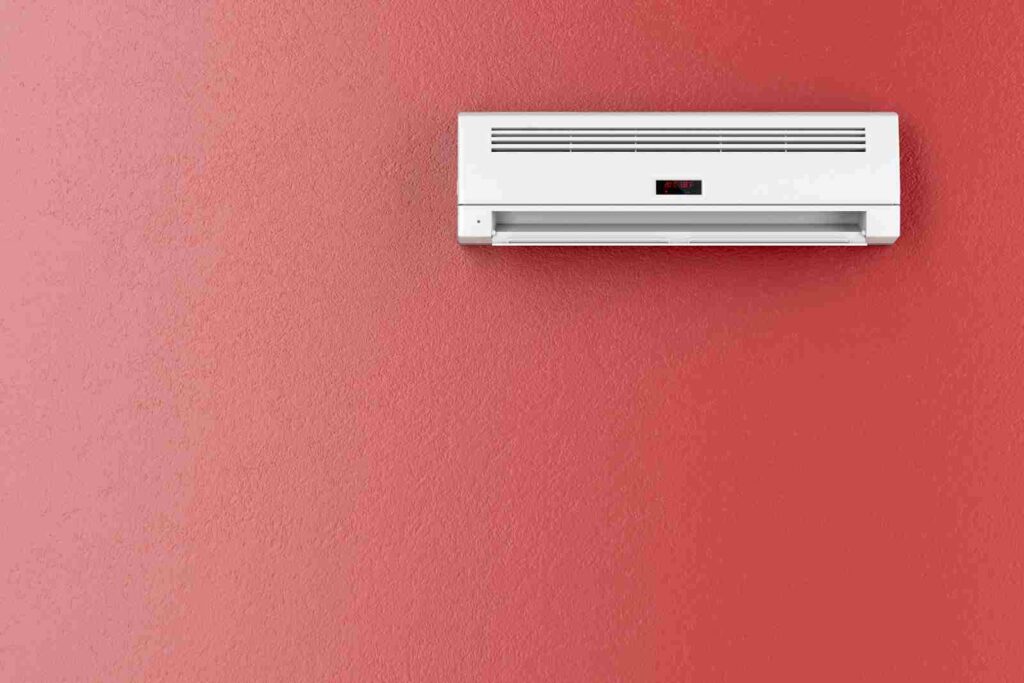
As with any technology, there are advantages and disadvantages to consider when deciding whether or not to install an air conditioning system in your home.
Pros of Air Conditioning
The main advantage of having home air conditioning is the increased comfort it provides. You can keep your home comfortable during the summer months by controlling the temperature inside.
An air conditioning system can also help to reduce allergens in the air, as well as noise levels. Because it filters out dust, dirt, and other airborne particles, air conditioning can also help improve air quality.
Cons of Air Conditioning
The cost of air conditioning is a disadvantage. Air conditioning systems are costly to install and require routine maintenance. Furthermore, they can be a significant source of energy consumption in your home, resulting in significantly higher electric bills.
Not all homes are suitable for air conditioning, and some may require the installation of special ventilation systems.
Air conditioning can be challenging to control. It can be difficult to maintain the desired temperature in your home if you do not have a thermostat installed. If you want to keep the temperature consistent throughout the house, you may need to purchase multiple air conditioning units.
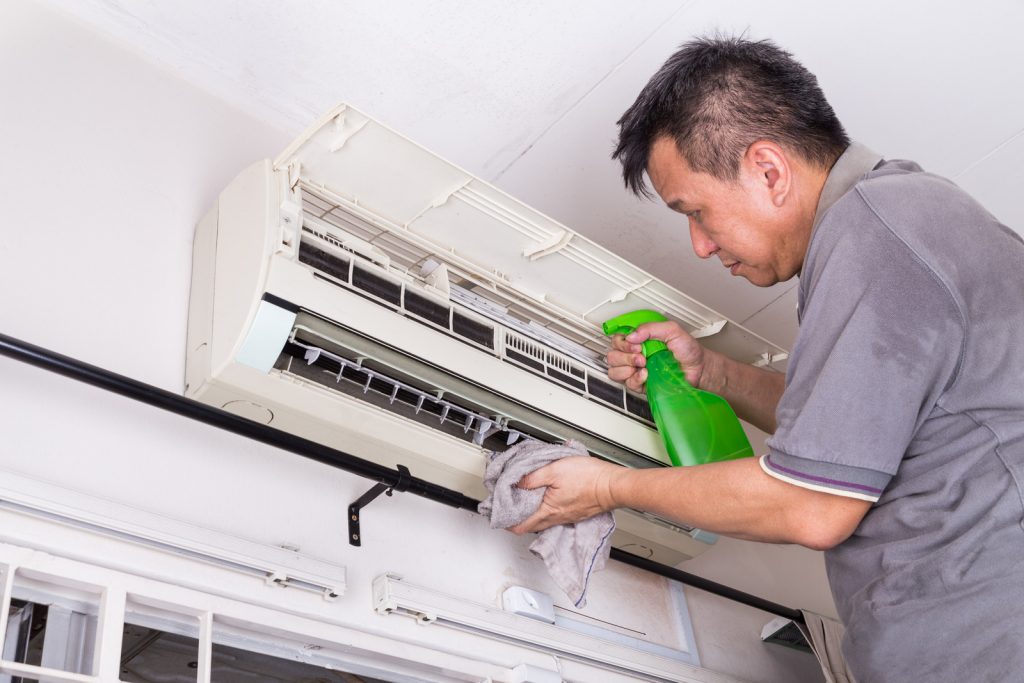
Deciding between the heat pumps and air conditioners
Choosing between a heat pump and central air conditioning is a big decision for any homeowner. Heat pumps and air conditioning systems offer distinct advantages, and it is important to know each before making a decision.
Consider the climate in your area as well as the size of your home when deciding between a heat pump and home air conditioning. Heat pumps are less expensive and can maintain consistent temperatures in mild climates.
However, in hotter climates, air conditioning systems are more effective and can provide direct cooling to a single room or your entire home.
Cost of heat pumps and air conditioners
In the United Kingdom, the cost of a heat pump and a home air conditioning system can vary greatly depending on a number of factors. In general, installing a heat pump or air conditioning in a home can range between £4000 and £10000. Both can be fitted for one or multiple rooms and come in individual units.
The cost of the system will be determined by several factors, including the size of the home, the type of system, the brand, and the cost of installation. The size and output of the heat pump and air conditioning system will be determined by the size of the home, which will affect the price.
The price will also be affected by the type of system, as some systems are more efficient and require more components to operate. The brand also be affects the price, as some brands offer higher quality products while others may be more affordable. Finally, the installation cost will influence the total cost because some homes may necessitate more time and labour for installation as well as the time of year.
At the moment, the government are encouraging heat pump installation by giving grants towards the cost, so they are cheaper to install. This may change in the near future when take up of these systems increases. Find out more about grants towards the cost of heat pumps here.
Energy Efficiency and Cost to Operate
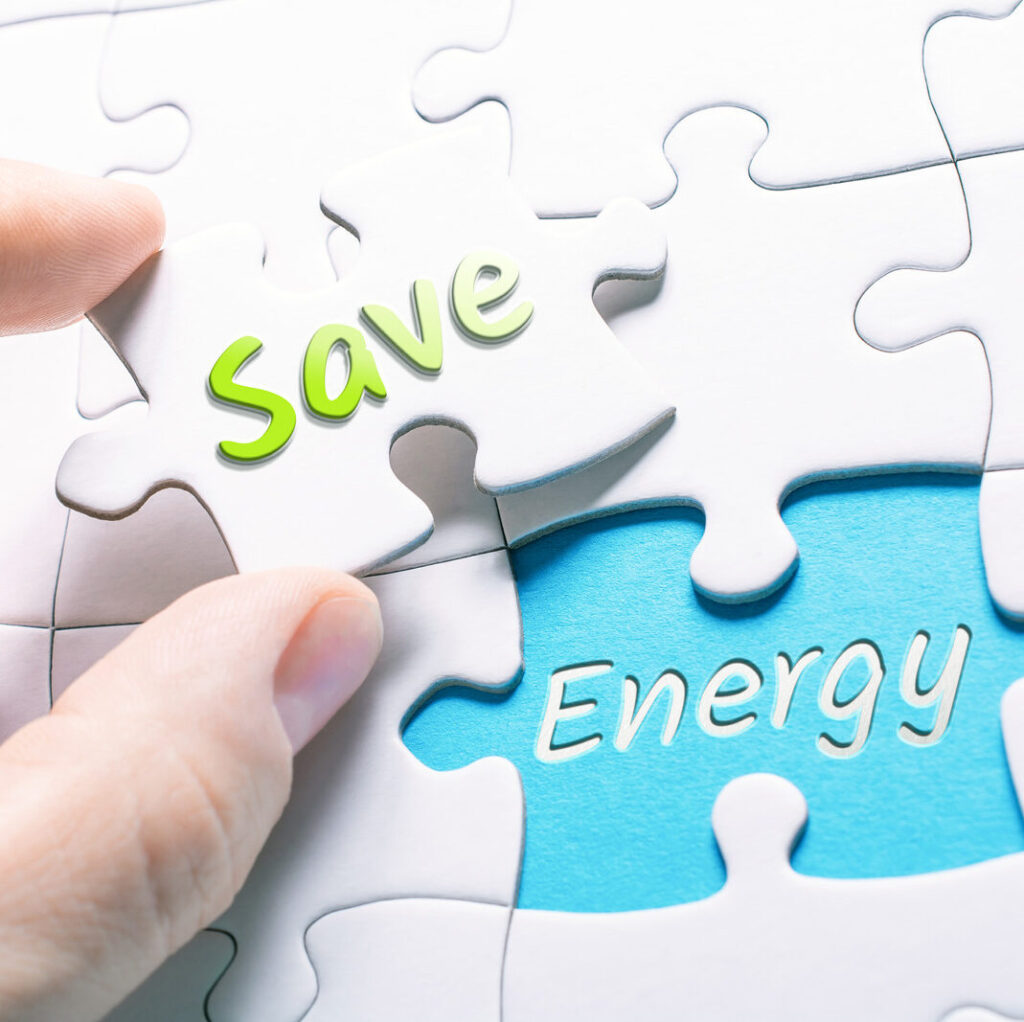
Maintenance costs for heat pumps include annual servicing, not for safety reasons so much, but more to keep the warranty valid. Heat pumps are very energy efficient – being able to provide 3 or 4 times the output for one unit of electricity. Air conditioners can be expensive to run, especially with the cost of a unit of electricity rising constantly. They are not as efficient as heat pumps.
It’s important to remember that in a mild climate, the use of air conditioners for cooling will be limited so the running costs should be lower. Whereas, heat pumps work throughout the year, for both heating and cooling so will likely break down more often and require more repairs.
Life Expectancy
Heat pump
A heat pump’s lifespan varies greatly depending on the type of unit, how well it is maintained, and the environment in which it is installed. Heat pumps typically last between 10 and 20 years.
Proper maintenance is essential for ensuring that your heat pump operates efficiently and lasts as long as possible. It is critical to have your heat pump serviced on a regular basis, including an annual check-up and filter change.
The environment in which your heat pump is installed will also affect its lifespan. Heat pumps installed in humid or cold climates may have a shorter lifespan than those installed in milder climates. What’s more, heat pumps placed in direct sunlight may wear out faster than those placed in the shade.
When a heat pump reaches the end of its useful life, it may begin to lose efficiency and require more energy to achieve the same level of cooling. If your heat pump is more than ten years old, it may be time to upgrade to a newer, more efficient model.
Air Conditioner
The lifespan of a home air conditioner is determined by a number of factors, including the type of unit, the maintenance schedule, and the climate in which it is used. The average lifespan of a home air conditioner is 10 to 15 years.
The type of air conditioner plays an important role in determining the unit’s lifespan. Central air conditioners that are properly maintained can last up to 20 years, whereas window units typically last 8 to 10 years. The efficiency of the unit also plays a role in determining the lifespan. Higher efficiency units typically last longer than lower efficiency units.
Read related articles:
